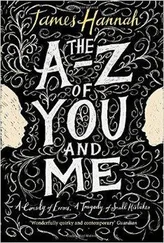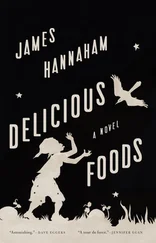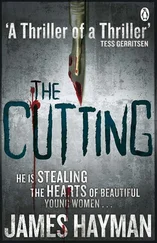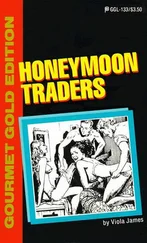James Hannah - Sign Languages
Здесь есть возможность читать онлайн «James Hannah - Sign Languages» весь текст электронной книги совершенно бесплатно (целиком полную версию без сокращений). В некоторых случаях можно слушать аудио, скачать через торрент в формате fb2 и присутствует краткое содержание. Год выпуска: 2015, Издательство: Dzanc Books, Жанр: Современная проза, на английском языке. Описание произведения, (предисловие) а так же отзывы посетителей доступны на портале библиотеки ЛибКат.
- Название:Sign Languages
- Автор:
- Издательство:Dzanc Books
- Жанр:
- Год:2015
- ISBN:нет данных
- Рейтинг книги:5 / 5. Голосов: 1
-
Избранное:Добавить в избранное
- Отзывы:
-
Ваша оценка:
- 100
- 1
- 2
- 3
- 4
- 5
Sign Languages: краткое содержание, описание и аннотация
Предлагаем к чтению аннотацию, описание, краткое содержание или предисловие (зависит от того, что написал сам автор книги «Sign Languages»). Если вы не нашли необходимую информацию о книге — напишите в комментариях, мы постараемся отыскать её.
Sign Languages — читать онлайн бесплатно полную книгу (весь текст) целиком
Ниже представлен текст книги, разбитый по страницам. Система сохранения места последней прочитанной страницы, позволяет с удобством читать онлайн бесплатно книгу «Sign Languages», без необходимости каждый раз заново искать на чём Вы остановились. Поставьте закладку, и сможете в любой момент перейти на страницу, на которой закончили чтение.
Интервал:
Закладка:
But when he demanded of himself a trip away from the house — to the store or a movie matinee — he could hardly wait to return. To sit on the couch in the infinite summer evening or on the deck and watch them howl and fight. The two oldest always touching — hand to elbow to shoulder. The yellow light warm on all their suntanned skins. The apartment door dark and sagging. He’d never seen a light on in a window. He quit reading his book by Henry Kissinger. At night he watched them at their supper fire, faces like masks but also the faces of children. Their motionlessness, rapt attention on the flames, a summation of the day’s abandonment in passionate play.
On one of the rare days they didn’t appear, but could be heard a block away in loud contests, the phone rang.
“What do you think you’re doing?”
“Hello?”
“Just what do you think you’re doing over there?”
Richard almost hung up. That’s what you do in Houston, in the city.
“It’s me, Barbie Glass. Remember, Rich? The Welcome Wagon lady. Your neighbors, Barbie and Buddy.”
Richard nodded and looked across the street. He couldn’t recall which house she’d said was theirs.
“Yes, of course. Hello, Barbie. How’s Buddy?”
“He’s the one made me call, Rich. He’s mad at you… mad as a wet hen…”
Richard heard a thin voice beyond Barbie’s; it was reedy and angry. “Sonofabitch,” it said. “Sonofabitch.”
“Hush up… shhh.”
“Barbie?” Richard looked out at the houses. Two houses to the north a man sat on the porch in a wheelchair, but he didn’t look toward Tom’s house. Richard kept his eyes on him; he wore a thin robe over pajamas and spat into a handkerchief concealed in a palm.
“You’re letting ‘em take over. You’re letting ‘em overrun us, Rich.”
Richard considered her words and found himself silent. The man in the wheelchair turned his head to the door. There was a voice now behind Barbie’s. Sharp, complaining, angry.
“They’re ruining our neighborhood. Stealing mail, tearing up property. This and that. And we’re old folks, Richard. And you’re encouraging them. After we’ve tried to keep ‘em in their own yard.”
“Goddammit,” the high voice shrieked.
Then he didn’t hear anything; Barbie must have put her hand over the receiver. Richard imagined her small fat palm across his lips.
“What do you think you’re doing, Buddy wants to know? Why ain’t you with us, Rich? Look at what they’ve done to Tom and Megan’s lovely yard.”
Richard stared at the man in the wheelchair.
“Can’t you help us, son? You seemed such a nice boy. Tom’s younger brother, the CPA.”
“Yes, of course. Of course I can, Barbie. But they’re just kids, you know…”
“Bad kids, Rich.”
“I…” And Richard hung up gently. He watched the old man on the porch cough convulsively into his palm, then he went into the kitchen and sat. He felt embarrassed for them all.
It was easier than he thought it would be. On Tuesday morning he went to McDonald’s and bought a half-dozen sausage-and-egg biscuits and cartons of orange juice. He waited on the deck in the dew-dampened chair until they stormed out of the apartment and over the wall to the shed — its sides dented in places from their roughhousing.
“Hey, how about some breakfast?” he said in a stage whisper. The four of them seemed to ignore him. So, for a few minutes they continued to play with the collection of broken chairs, warped boards, and old chenille bedspreads and Richard continued to sit on the deck, his face warm as if he’d had whiskey.
Finally they came running and collected on the deck so close to him he’d stepped back and waved them inside.
That’s the way it would begin. He’d buy sweet rolls or breakfast muffins. Or he’d fry eggs and bacon. After a couple of days they’d be cavorting on the deck, cracking the glaze of empty bonsai pots, picking at torn strips of webbing from the chaise longue, until he slid open the door and they rushed inside to the kitchen.
They seldom talked. They ate like wolves he’d seen on PBS. They jerked at their food, chomped down bacon, ham, and toast. Guzzled their orange juice.
They smelled like cat’s fur — the smell of the sun on things that live out under it. Richard kept his distance, stood with his hips against the edge of the kitchen sink.
And then he let them play in Tom and Megan’s house and they destroyed very little. All they broke he’d replace before the summer was over. There were dropped glasses, a bowl full of wax fruit — Kimmy took a bite from the Red Delicious apple and, in anger and surprise, pushed the whole bowl off the coffee table.
“Mista, you gotta dead rat in heah,” Chip said, wrinkling his nose. “Don’t ya smell hit? Somethin’ wrong with ya nose?” He laughed, his teeth gapped and yellow. Richard saw they were his permanent teeth. He nodded, but he no longer smelled anything; he had gotten used to it.
But they seldom talked to him, and though they were soon into everything, Richard held his tongue. Kimmy and Chip found pots and pans in the kitchen to play with. He sat on the couch and listened to their wild babble; he heard them argue; they came to blows, swinging pots as weapons. Often one screamed and dropped to the floor weeping. But Richard just listened, knowing that if the pain were too great the child would run out the door and into the woods.
The oldest two played in Tom’s study where there were dozens of old magazines and family photo albums. They typed on the typewriter and giggled. They lay on the carpet — Richard watched their feet stretched out across the doorway. Brown legs in the air, they talked a low foreign language, a dialect all their own. Sometimes, when he came from another room, trying to keep things a bit straight, he’d glance in and they’d be talking head-to-head and then they’d look up at him as if he were a ghost, their faces suddenly ashen and their lips drawn tight. He’d nod at them and smile, but they’d keep staring.
Some days they didn’t come, weren’t waiting for him on the deck. On those occasions he’d drive an hour into the medium-sized city and window shop and eat at some awful restaurant offering local dishes. Taking a mouthful of food, looking out the window at his brother’s Toyota, he considered what it was he was doing. But not for long, and he answered everything with a shake of his head.
When they did arrive his breath caught for a moment at the top of his lungs. He sat on the couch in the living room and listened to all their noise — the crash of pans, the complaint of the abused typewriter. Standing at the back door, Chip scanned the yard with Tom’s binoculars. That afternoon — they always left by two at a sharp command from the older boy, drawn to the sun — Richard couldn’t find the binoculars. He wrote it on a piece of paper in the study, a list he had begun keeping. “Things to Do,” it said, though it meant “things to buy, to replace.” On the floor were dozens of sheets of paper black with typing. “Karen… Bobby… Hates… Kisses.” A stew of typos. Odd pieces of themselves left behind. In the kitchen there were different traces. Puddles of flour, water, sugar. Cake pans full of soggy oatmeal. It took him more than two hours to clean up. Afterward he’d watch baseball on television until it was time to lie down and watch them around their fire.
“Holy Jesus, are you crazy?” The phone clicked dead. Richard looked across the street; behind him, the little ones fought. It wasn’t, he decided, either of their voices. It was a low man’s voice disguised as high.
The day the rain broke the drought, they stayed until almost five. Rising from the couch, Richard walked down the hall. In the study, with the rain pounding on the air-conditioner, the boy was asleep on the floor.
Читать дальшеИнтервал:
Закладка:
Похожие книги на «Sign Languages»
Представляем Вашему вниманию похожие книги на «Sign Languages» списком для выбора. Мы отобрали схожую по названию и смыслу литературу в надежде предоставить читателям больше вариантов отыскать новые, интересные, ещё непрочитанные произведения.
Обсуждение, отзывы о книге «Sign Languages» и просто собственные мнения читателей. Оставьте ваши комментарии, напишите, что Вы думаете о произведении, его смысле или главных героях. Укажите что конкретно понравилось, а что нет, и почему Вы так считаете.












